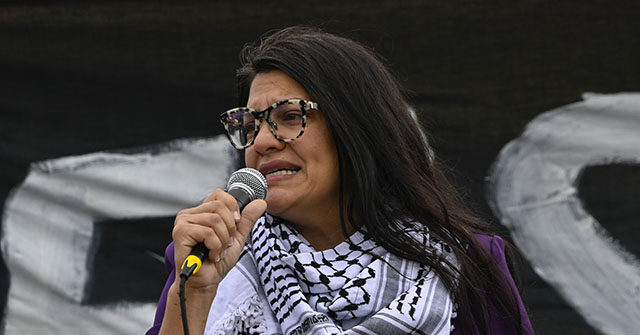On October 6, Rep. Rashida Tlaib (D-MI) faced criticism for a post on Instagram commemorating the anniversary of the Hamas terror attack on October 7. In her post, she mentioned participating in a ceremony organized by “JVP-Detroit,” a local chapter of Jewish Voice for Peace (JVP), an organization that has been accused of supporting anti-Israel rhetoric. The post drew attention as it coincided with a broader context of rising tensions and violence in the Israeli-Palestinian conflict. By associating with an organization linked to controversial statements, Tlaib’s actions prompted questions regarding her intentions and the implications of her words in a highly polarized environment.
During the ceremony, participants engaged in Tashlich, a traditional Jewish practice typically observed during the Jewish New Year. This ritual involves casting bread crumbs into a body of water, symbolizing the act of casting away sins. The event is meant to foster introspection and repentance, allowing individuals to reflect on their actions and seek forgiveness. However, Tlaib’s framing of the ceremony took a different turn, as she transformed this cultural tradition into a political statement promoting the call for a “free, free Palestine.” This phrase is often interpreted as advocating for the dismantling of the state of Israel, raising concerns about the politicization of religious practices.
Tlaib has a history of expressing views that align with the idea of a one-state solution to the Israeli-Palestinian conflict, which critics argue threatens the existence of Israel as a Jewish state. While she has since claimed to entertain the notion of a two-state resolution, Tlaib has placed blame on Israel for any obstacles to achieving such outcomes. Critics assert that her narrative omits critical context about the ongoing complexities of the conflict, thereby simplifying deeply rooted issues into slogans that may encourage further division rather than resolution.
Tlaib’s rhetoric and actions are emblematic of a larger trend observed among certain politicians and advocacy groups that challenge pro-Israel sentiments in the United States. The rise of movements questioning traditional U.S. support for Israel has sparked debates within political spheres, especially among progressive Democrats. The intersection of politics, social justice movements, and historical grievances has led to renewed scrutiny over statements and actions that may incite division or undermine reconciliation efforts.
This situation underscores the challenges of navigating political discourse surrounding the Israeli-Palestinian conflict. There remains a delicate balance between advocating for Palestinian rights and ensuring that such advocacy does not cross into delegitimizing Israel. Tlaib’s methodology has drawn criticism not only for its potential to alienate supporters of Israel but also for expanding the scope of political dialogue beyond constructive engagement into clashes over historical narratives.
Ultimately, this incident raises important questions about the nature of political activism and its interaction with cultural symbols and traditions. It calls for a consideration of how leaders use established practices to advance political agendas, sometimes at the expense of the values those traditions represent. Such actions can deepen societal divides, complicating efforts toward peace and mutual understanding amidst longstanding conflicts. The challenge remains for individuals and communities to engage in meaningful dialogue that respects both historical experiences and aspirations for the future.

